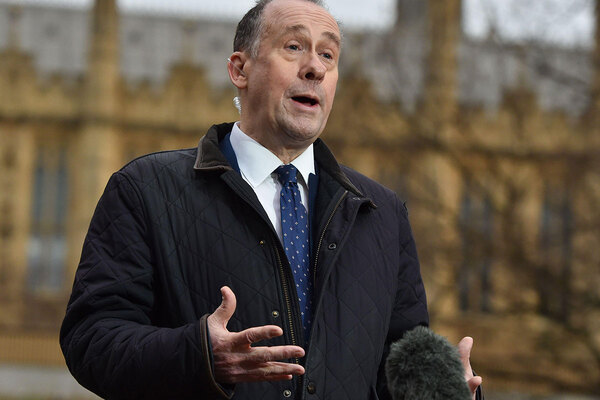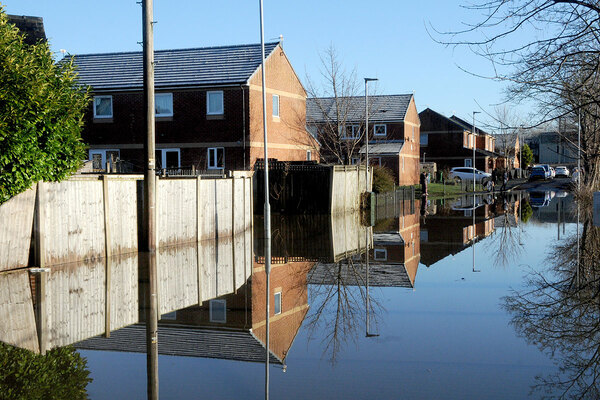Why social housing heat providers are handing control to the private sector
What’s happening with social landlords’ heat networks right now is crucial – and it’s reshaping the way we think about energy delivery, writes Ali Arshad, head of L&Q Energy
Fourteen years in the energy industry teaches you a lot. Back when I worked for one of the Big Six energy suppliers, I was at the heart of implementing the Competition and Markets Authority’s recommendations. Today, many of those lessons are being applied to my work in a different field: heat networks in the social housing sector.
What’s happening with social landlords’ heat networks right now is crucial – and it’s reshaping the way we think about energy delivery.
Social housing providers have a unique mission: to deliver heat that’s affordable, reliable and environmentally friendly.
This is no small task. With over 14,000 heat networks serving around 150,000 households, we are using local, low-carbon heat sources to reduce emissions and boost the UK’s energy independence.
But here’s the challenge: managing these heat networks is getting harder. New technologies, upcoming regulations and rising costs are leading many social housing providers to consider handing the reins to private companies.
The big questions are: what does this shift mean for those who depend on these services, and at what cost?
Take L&Q, one of the largest housing associations in the UK. We have a foot in both worlds. Half our networks are managed in-house, while the other half are outsourced to third-party energy services companies (ESCOs), managing agents or managed through our own ESCO, L&Q Energy Ltd. It’s a balancing act that sheds light on a growing dilemma: should we keep control of these essential services, or outsource them fully?
For many, the temptation to outsource is strong, especially with new rules from the regulator Ofgem and the Department for Energy Security and Net Zero coming into force. These regulations will set stricter standards for fair pricing, service reliability and extra protections for vulnerable residents, while also demanding greater efficiency.
“If new technical standards come in, ESCOs and other contractors will charge social landlords more for taking on these compliance risks”
While these changes aim to benefit residents, they are also likely to add new burdens for heat network operators in terms of design, construction and ongoing management. Regulations are still evolving, and it’s unclear whether social housing providers can truly pass financial and operational responsibilities on to third parties.
What are the three biggest challenges the sector faces when deciding whether to bring in private partners?
First, the Heat Network Technical Assurance Scheme (HNTAS). Imagine you’re building your own home. You hire an architect to handle the design and build. But then new regulations come in. Your fees increase because new requirements must be included in the contract.
It’s the same with heat networks. If new technical standards come in, ESCOs and other contractors will charge social landlords more for taking on these compliance risks. Higher costs mean less money to invest in other network improvements.
Now, picture that, despite paying this extra cost, your new home is still deemed uninhabitable, as the standards weren’t met fully. You end up paying to stay in your current home and covering the legal fees of pursuing the architect. Similarly, if heat networks don’t meet required standards, social landlords risk losing rental income and facing legal costs.
When it comes to upgrading existing heat networks, social landlords may also be left footing the bill. ESCOs are unlikely to cover these. This could result in extra costs for us and higher tariffs for residents.
Second, consumer protection regulations. Ofgem’s new rules are aimed at strengthening consumer protection, but they also introduce challenges. When social landlords outsource to an ESCO, they typically contribute to the standing charge for energy supply costs, which can vary significantly due to global factors. Think of it like agreeing to a fixed price with a builder, only for the total to keep changing unexpectedly.
This is the reality for many housing providers navigating fluctuating pricing structures. With no revenue from the heat supply, landlords may need to shift funds away from other services to cover these costs.
“Social housing providers aren’t just landlords anymore. We’re also energy suppliers, and we need the right tools to stay competitive and keep delivering for our residents”
Finally, heat-network zoning. The government has identified ‘zones’ where heat networks are the most cost-effective, low-carbon heating solution. In these zones, we expect there will be strict design, adoption and temperature standards, with possible penalties for non-compliance. Social landlords in these zones will probably remain responsible for heat network operation, maintenance and repair costs, even while paying external parties to provide heat.
Regulation is a good thing, but it needs to be fair. Clear rules generally lead to better outcomes for consumers, something all of us in the industry can agree on. But here lies the problem: social housing providers aren’t just landlords anymore. We’re also energy suppliers, and we need the right tools to stay competitive and keep delivering for our residents.
The private sector has a role to play, but the deals need to be win-win. If private companies want to manage our heat networks, they need to offer options that help us balance budgets, provide reliable heat for residents and avoid those surprise costs that throw everything off track.
So, what’s the bottom line? At the end of the day, the question is this: can we afford to outsource our heat networks without losing control? The stakes are high, and the residents who rely on us need a solution that prioritises affordability and reliability. Without the right safeguards, we risk undermining our mission to deliver sustainable, affordable heat.
It’s a challenging road ahead, but one thing is clear. As the landscape evolves, we need to keep asking these tough questions, because the answers will shape how we heat the homes of millions of people across the country.
Ali Arshad, head of L&Q Energy
Sign up for our asset management newsletter
Already have an account? Click here to manage your newsletters













